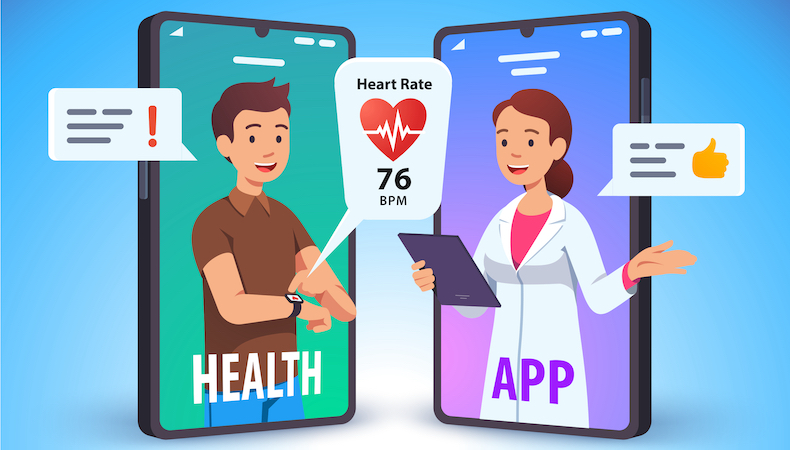Why cancer screening needs to be connected to clinical support
Advances in screening and treatment mean cancer is no longer a disease of old age, but one that more and more people live and work with.
The number of under-50s being diagnosed has increased 80% in the last 30 years and close to half of all people living with cancer in the UK are of working age. As a complex and increasingly prevalent condition, cancer is fast becoming a challenge for employers.
An effective way to offer cancer support to employees is through preventative health interventions. In particular, there’s been an increase in employers offering cancer screening - tests that look for cancer or cell abnormalities that might develop into cancer, in people who have no symptoms.
However, screening is often misunderstood and can present challenges to employers. These include affordability and a lack of clinical follow-up support for employees.
Types of screening
There has been lots of innovation in screening over the past few years, which means there are more options for employers. The three main types are:
- NHS screening
- Screening through private medical insurance (PMI)
- At-home genetic testing kits
Each has varying levels of support at different price points. When choosing a route, employers face balancing the need to provide clinical support and follow-up (if needed) with cost effectiveness as premiums increase.
NHS tests
The NHS offers three screening tests – cervical, breast and bowel.
A big challenge here is uptake. Recent data shows that in England in 2022/23, 4.62 million people aged 25 to 64 were invited to book a cervical screening appointment, yet only 3.43 million attended, meaning around one-third were not screened. Figures are similar for breast cancer, in which 35.4% of those invited in 2022/23 were not screened, and also for bowel cancer, in which – despite an overall increase in uptake – 30% of those who are sent a home testing kit do not return it.
The factors behind low uptake rates vary:
- Inability to access convenient appointments or take the time off work
- Lack of knowledge about screening and eligibility
- Discomfort about the screening process and/or procedures
- Fear of results
Screening through PMI
Clinical tests through PMI look for early signs of cancer in the breasts, cervix and colon, as per NHS screening, but can also check the prostate – for which there is no current NHS screening programme – skin and other areas.
Uptake for screening tests offered by PMI is good, especially since the pandemic. In fact, one insurer reported in January 2024 that it had seen a sharp increase in cancer diagnostic services, including a 52% rise in breast and skin screening alone, in a single year. If cancer is suspected, referral times also tend to be faster than with the NHS.
It’s an intervention that comes with a significant price tag. Best practice screening through PMI is usually carried out by a private clinician, using hospital-grade equipment.
A less costly intervention involves offering at-home genetic tests, but these tests can present challenges and often leave employees with unanswered questions and a lack of support.
At-home genetic testing kits
While cancer is not usually inherited, there are some types, mainly breast, ovarian, colorectal and prostate cancer, that can be strongly influenced by genes and can run in families. Genetic testing at home (or direct-to-consumer (DTC) genetic testing) is becoming more popular.
Most direct-to-consumer genetic tests are saliva based. The kit is sent with instructions and equipment for collecting a sample. This is then posted back to the company for analysis.
Challenges with at-home genetic testing kits include the fact that the quality is not comparable to those used in clinical care. They don’t test the whole gene, which can mean that faults are missed, and the individual can receive an incomplete picture of their cancer risk. There is also a risk of false positive results.
The importance of clinical support
However an employee has accessed screening – whether through the NHS, PMI or a DTC kit – follow-up from a clinician is essential, especially if the screening test has found signs of cancer.
Yet, depending on the screening route, and the level of cover offered by an employer, this support might not be available. Digital healthcare can help fill in those clinical gaps in a cost-effective way.
Closing the gap in your preventative health plan
So what does an effective (and cost-effective) preventative health plan look like?
1. Visibility: Use surveys to gather cancer screening data from your workforce and identify gaps in which employees are either not accessing screening or clinical follow-up support.
2. Education: Ensure employees understand cancer risk factors and screening recommendations for their demographic, especially for those at high risk.
3. Access: Give employees time off to attend screening appointments.
4. Support: Use cost-effective technology to connect those who are concerned about inherited risk or who have received worrying results to qualified health professionals.
Supplied by REBA Associate Member, Perci Health
Perci Health is the first digital platform bridging the gap between cancer and wellness.


